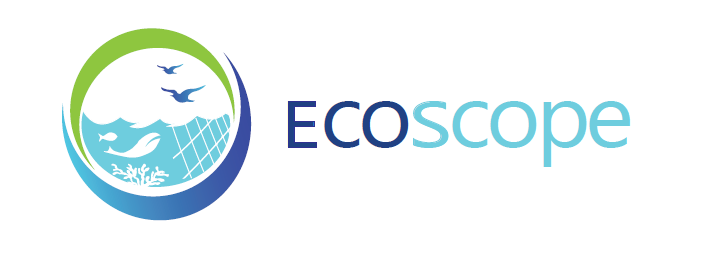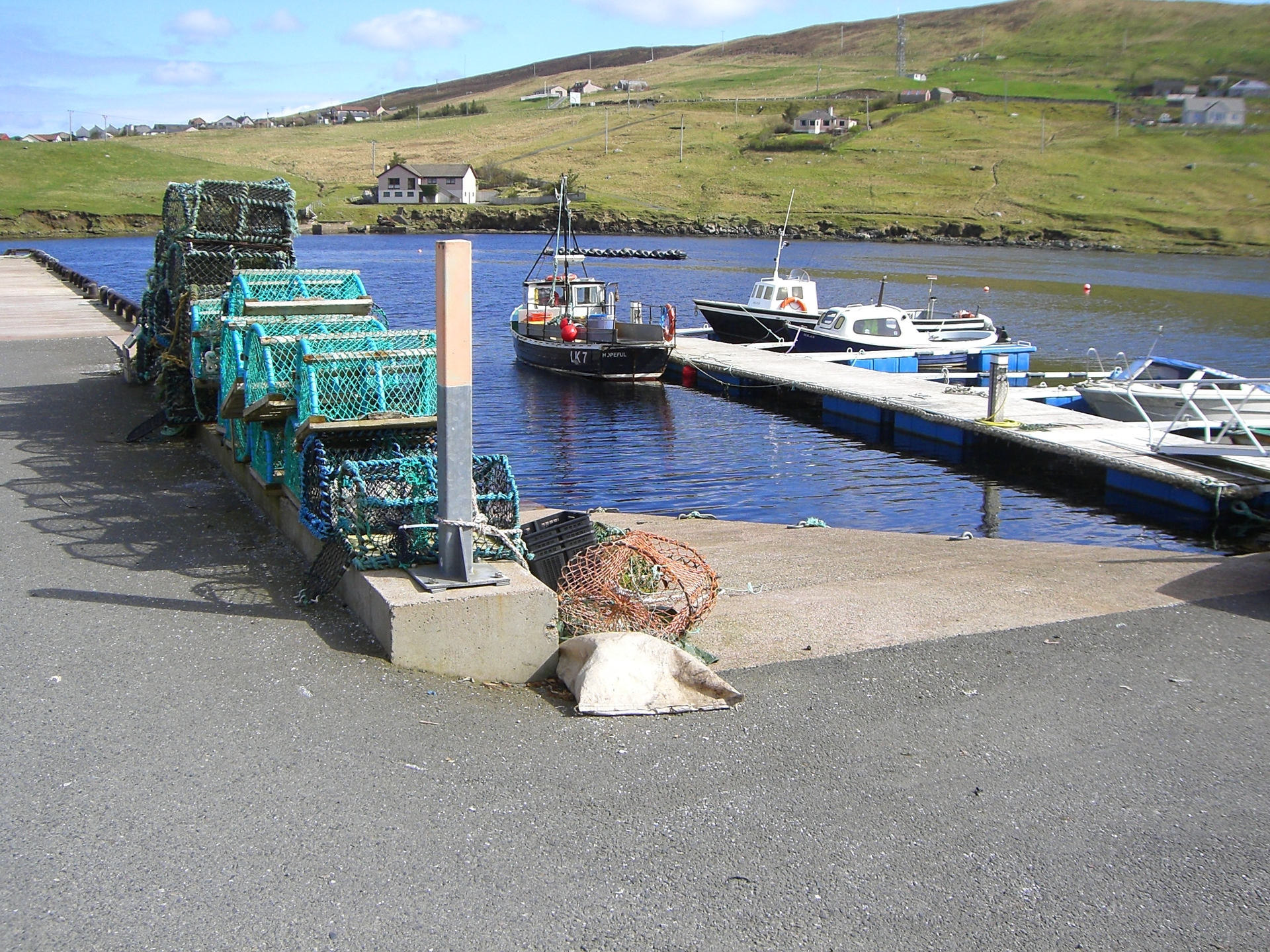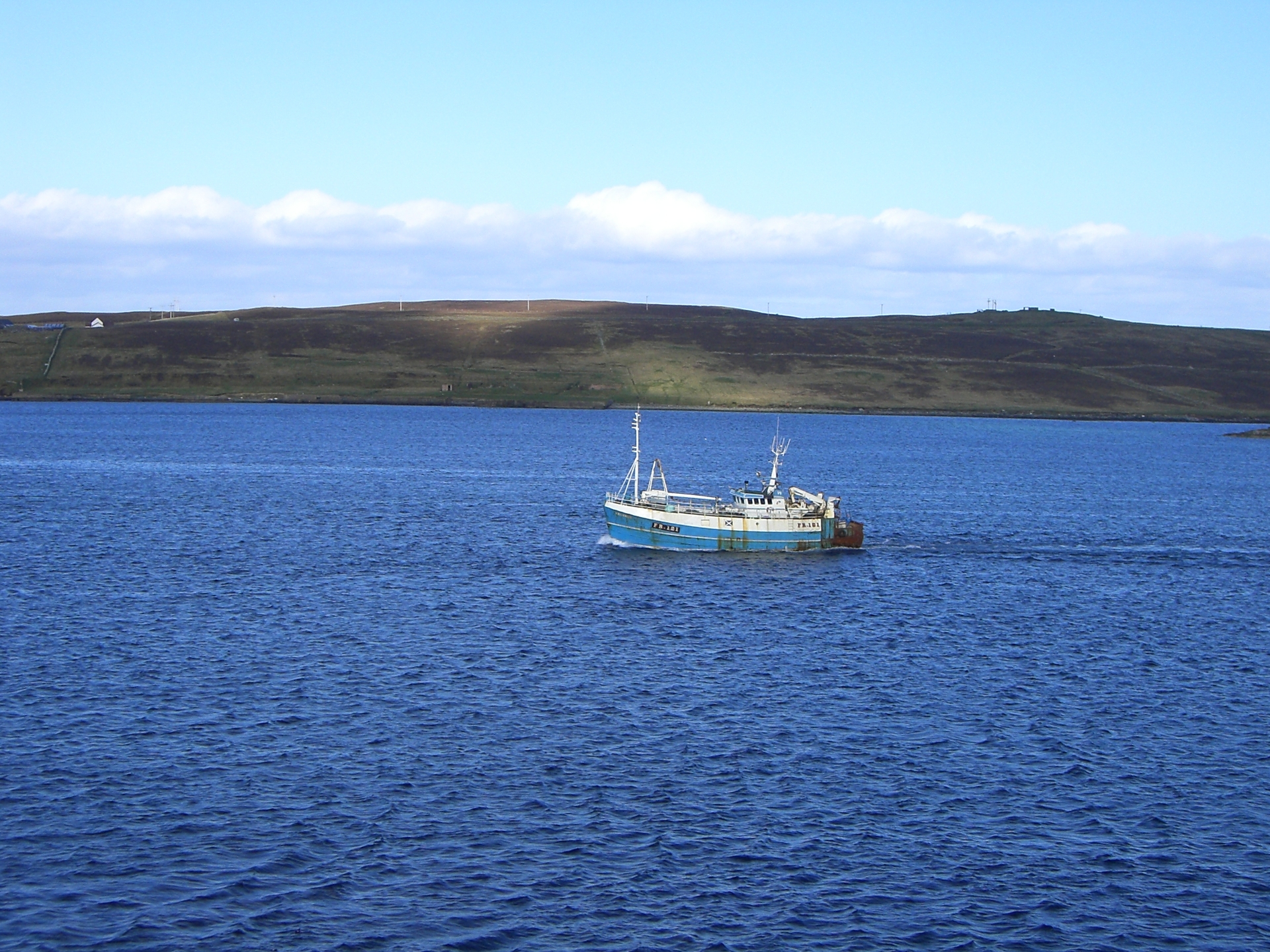
Project type | Horizon 2020 Blue Growth Call: Fisheries in the full ecosystem context (H2020 BG-10-2020) |
Duration | Sep 2021 – Aug 2025 (48 months) |
Budget | 7.9 million Euros |
Consortium | 24 partners |
Coordinator | Aristotle University of Thessaloniki, Greece |
Website | |
EMB role | Leader of WP8: Interaction with stakeholders and capacity building |
Background and Objective
 The overall objective of EcoScope is to co-design and develop an efficient and holistic ecosystem-based approach to sustainable fisheries management that can be easily used by policy makers and advisory bodies. This will be achieved through an interoperable platform and a robust decision-making toolbox, which will be available through a single public portal.
The overall objective of EcoScope is to co-design and develop an efficient and holistic ecosystem-based approach to sustainable fisheries management that can be easily used by policy makers and advisory bodies. This will be achieved through an interoperable platform and a robust decision-making toolbox, which will be available through a single public portal.
The EcoScope Platform will organise and homogenise climatic, oceanographic, biogeochemical, biological and fisheries datasets for European Seas into a common standard type and format that will be available to the users through interactive mapping layers.
The EcoScope Toolbox, is a scoring system linked to the platform. It will host ecosystem models, socio-economic indicators, fisheries and ecosystem assessment tools that can be used to examine and develop fisheries management and marine policy scenarios as well as maritime spatial planning simulations. Novel assessment methods for data-poor fisheries, including non-commercial species, as well as for biodiversity and the conservation status of protected megafauna, will be used to assess the status of all ecosystem components across European Seas and test new technologies for evaluating the environmental, anthropogenic and climatic impact on ecosystems and fisheries.
The project will work closely with end-users and stakeholders to co-design the development and operation of the platform and the toolbox.
The EcoScope Academy will make a series of sophisticated capacity building tools, such as online courses, documentary films, webinars and games available to stakeholders.
The project will also develop a mobile application (EcoScope App), which will enable citizens to report on marine hazards, illegal fishing practices and removal or stranding of protected species.
By filling these knowledge gaps and developing new methods and tools, EcoScope will provide an effective toolbox for decision makers and end-users that will be adapted to their abilities, needs and data availability. The toolbox will incorporate methods for dealing with uncertainty and deep uncertainty. It will promote efficient, holistic, sustainable, ecosystem-based fisheries management that will help to restore fisheries sustainability and ensure balance between food security and healthy seas.
European Marine Board Role
EMB is the leader of Work Package 8: Interaction with stakeholders and capacity building. The main tasks involve:
Stakeholder mapping & stakeholder management planning
- The identified stakeholders will form the Stakeholder Knowledge Exchange Forum, which will co-design the tools with the EcoScope team and will give feedback on the implementation and effectiveness of the tools
Stakeholder co-design meetings and surveys to co-design tools
- Identifying the needs of policy makers and stakeholder via:
- Foresight workshop 1: Policy maker and stakeholder requirements (download the report here)
- Ecoscope Toolbox survey to gauge needs for the management tools (download the report here)
- EcoScope indicator implementation workshop
- Foresight workshop 2: Future requirements for ecosystem based sustainable management
In addition, EMB participates in the following Work Packages (WP):
- WP7: Assessing societal expectations and economic values, where it will lead a task on writing a Policy brief on community preferences
- WP5: Assessing the ecosystem and its components
- WP1: Project management
- WP10: Dissemination and visibility
EcoScope Partners
- Aristotle University of Thessaloniki, Greece
- Democritus University of Thrace, Greece
- Institute of Biodiversity and Ecosystem Research- Bulgarian Academy of Sciences, Bulgaria
- GEOMAR Helmholtz Centre for Ocean Research, Germany
- University of British Columbia, Canada
- Israel Oceanographic & Limnological Research, Israel
- Quantitative Aquatics, Philippines
- Instituto Español de Oceanografia, Spain
- Centre d’Etudes Biologiques de Chizé, CNRS, Université de La Rochelle, France
- Flanders Research Institute for Agriculture, Fisheries and Food, Belgium
- Blue Lobster IT Limited, UK
- Hidromod, Portugal
- European Marine Board, Belgium
- National Research Council, Italy
- Centre for Policy Exploration Analysis Simulation, Netherlands
- Society for the Protection of Nature in Israel, Israel
- University of Malta, Malta
- Norwegian Institute for Water Research, Norway
- Thalassa Foundation, Switzerland
- LearnWorlds, Cyprus
- Agora Partners, Israel
- Collecte Localisation Satellites, France
- Stichting Breda University of Applied Sciences, Netherlands
- Ecopath International Initiative, Spain
Contact at European Marine Board Secretariat: Ana Rodriguez
 EcoScope is funded by the European Union's Horizon 2020 Research and Innovation programme, grant agreement No 101000302. The information and views of this website lie entirely with the authors. The European Commission is not responsible for any use that may be made of the information it contains.
EcoScope is funded by the European Union's Horizon 2020 Research and Innovation programme, grant agreement No 101000302. The information and views of this website lie entirely with the authors. The European Commission is not responsible for any use that may be made of the information it contains.